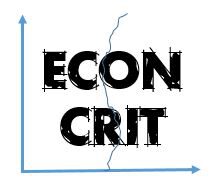English Studies has a long-established tradition of scrutinising how literary, cultural, audio-visual etc. texts represent and interact with particular socio-cultural phenomena and discourses – in other words, how texts relate to contexts (e.g. gender in the case of gender studies or the environment in the case of ecocriticism). In Economic Criticism, the phenomenon, or context, at the centre of analysis is the economy. Here is a preliminary definition of Economic Criticism from one of our previous publications:
“What is economic criticism, and what is its value for literary and cultural studies? As a starting point, we propose a general definition, according to which economic criticism explores the interrelations between literature, culture, and the economy, as well as those between literary studies, cultural studies, and economics. Due to the numerous and historically variable interrelations, economic criticism encompasses a range of research questions, subject matters, and methodologies, making it a field of study that is stimulating, but also – as most economic critics readily admit – difficult to chart. Economic criticism (i) analyses how the economy and what is seen as its constitutive elements (e.g. money, consumption, economic agents) are represented in literature, film, visual arts, etc.; (ii) studies non-fiction about the economy (e.g. the foundational texts of classical political economy or Marxism) as primary literature; (iii) scrutinises activities and phenomena associated with the economy (e.g. shopping, work, class) through the methodologies of cultural and literary studies; (iv) investigates how economic frameworks influence the creation of literary and cultural products as well as the production of knowledge in academic disciplines; (v) explores points of convergence between terms, concepts, and methods of economics, literary, and cultural studies (e.g. circulation, representation, value, utility).” (Grünkemeier, Pleßke, and Rostek, 117)
Source: Ellen Grünkemeier, Nora Pleßke, and Joanna Rostek. “The Value of Economic Criticism Reconsidered: Approaching Literature and Culture through the Lens of Economics”. Introduction. Proceedings Anglistentag 2017. Ed. Anne-Julia Zwierlein, Jochen Petzold, Katharina Boehm, and Martin Decker. Trier: WVT, 2018. 117-125.
